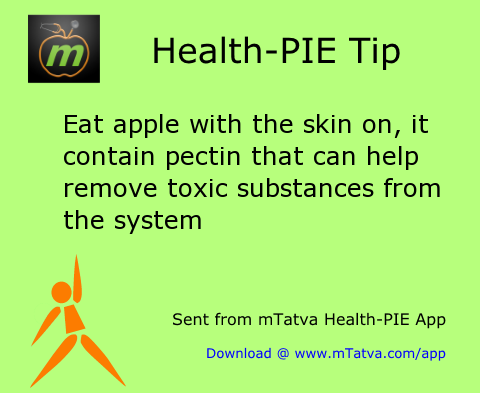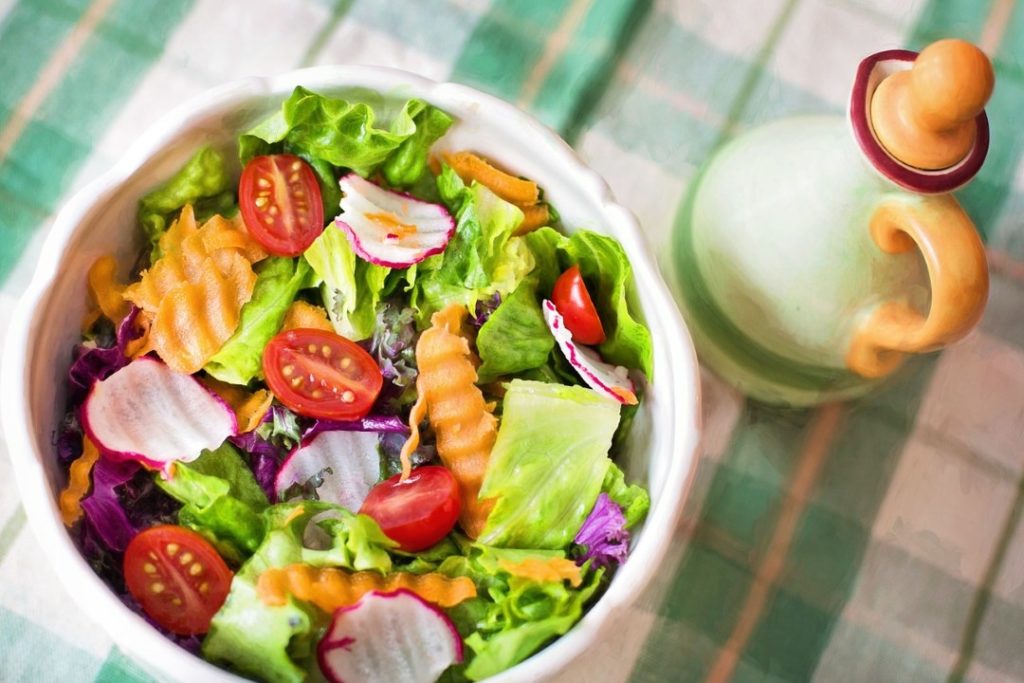
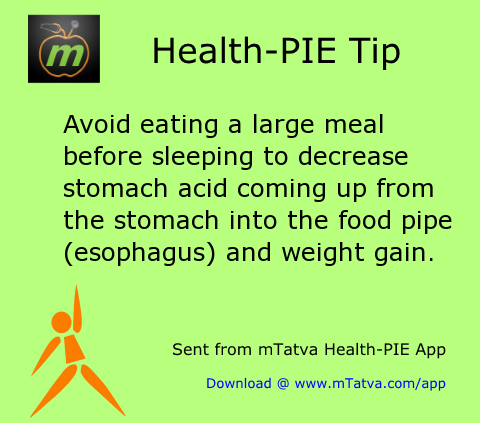
Avoid eating a large meal before sleeping to decrease stomach acid coming up from the stomach into the food pipe (esophagus) and weight gain.
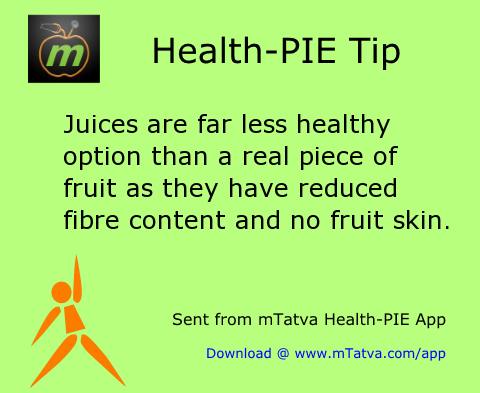
Juices are far less healthy option than a real piece of fruit as they have reduced fibre content and no fruit skin.
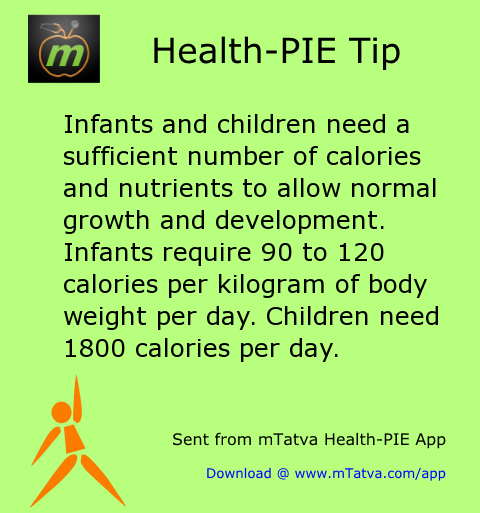
Infants and children need a sufficient number of calories and nutrients to allow normal growth and development. Infants require 90 to 120 calories per kilogram of body weight per day. Children need 1800 calories per day.
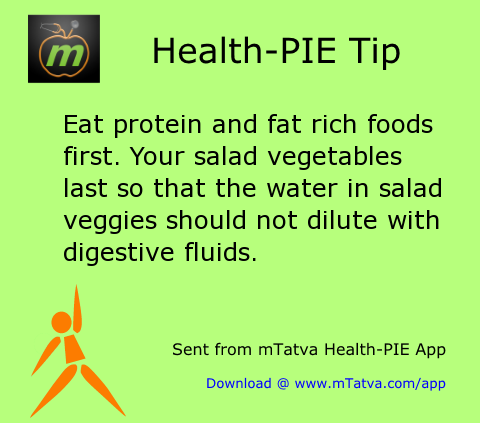
Eat protein and fat rich foods first. Your salad vegetables last so that the water in salad veggies should not dilute with digestive fluids.
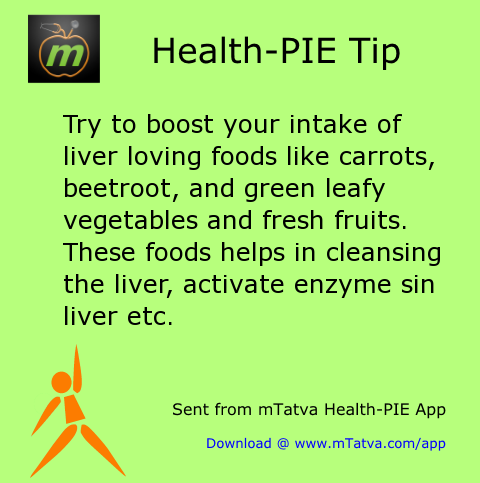
Try to boost your intake of liver loving foods like carrots, beetroot, and green leafy vegetables and fresh fruits. These foods helps in cleansing the liver, activate enzyme sin liver etc.
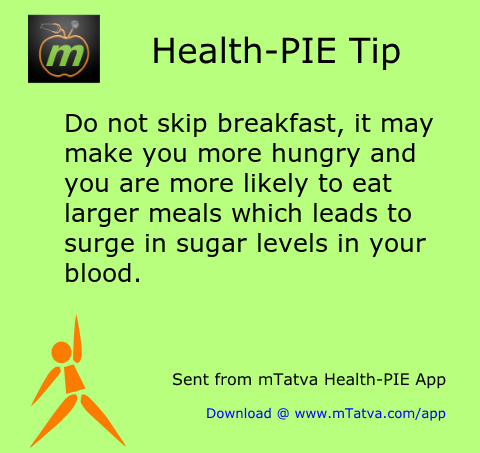
Do not skip breakfast, it may make you more hungry and you are more likely to eat larger meals which leads to surge in sugar levels in your blood.
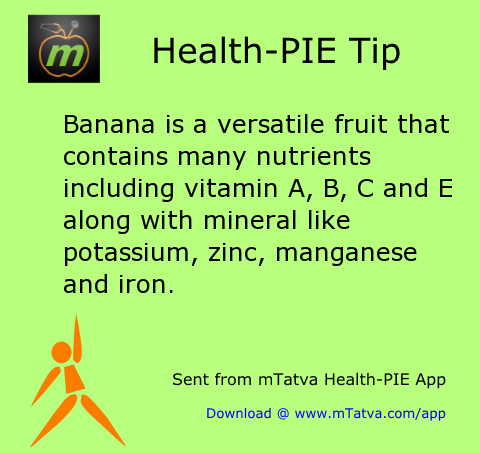
Banana is a versatile fruit that contains many nutrients including vitamin A, B, C and E along with mineral like potassium, zinc, manganese and iron.
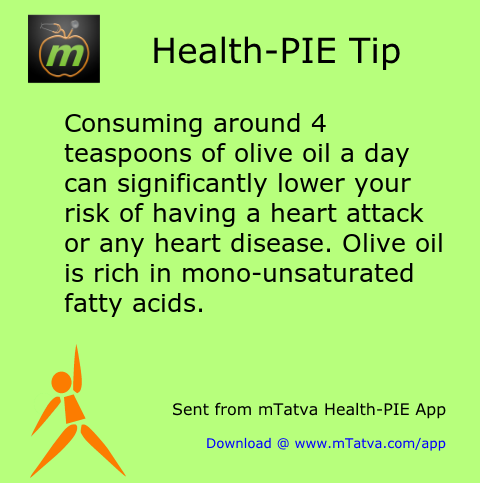
Consuming around 4 teaspoons of olive oil a day can significantly lower your risk of having a heart attack or any heart disease. Olive oil is rich in mono-unsaturated fatty acids.
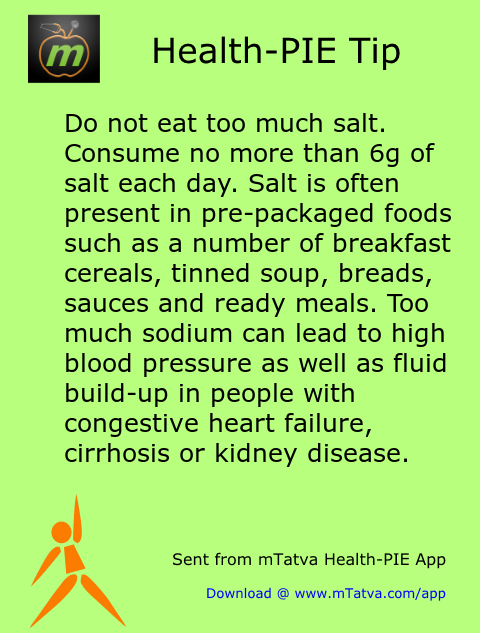
Do not eat too much salt. Consume no more than 6g of salt each day. Salt is often present in pre-packaged foods such as a number of breakfast cereals, tinned soup, breads, sauces and ready meals. Too much sodium can lead to high blood pressure as well as fluid build-up in people with congestive heart failure, cirrhosis or kidney disease.
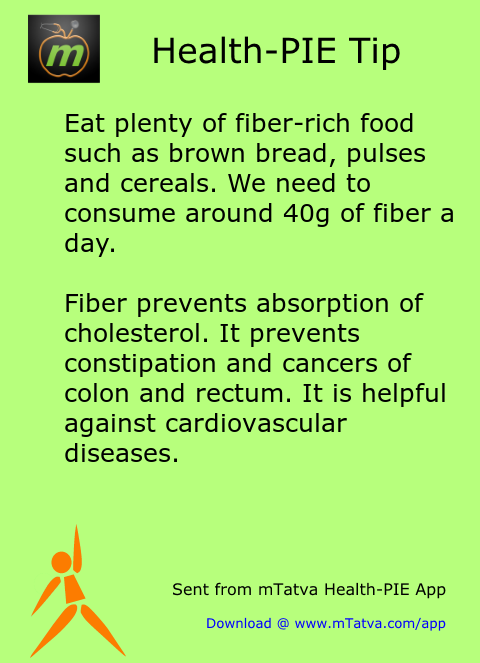
Eat plenty of fiber-rich food such as brown bread, pulses and cereals. We need to consume around 40g of fiber a day.Fiber prevents absorption of cholesterol. It prevents constipation and cancers of colon and rectum. It is helpful against cardiovascular diseases.
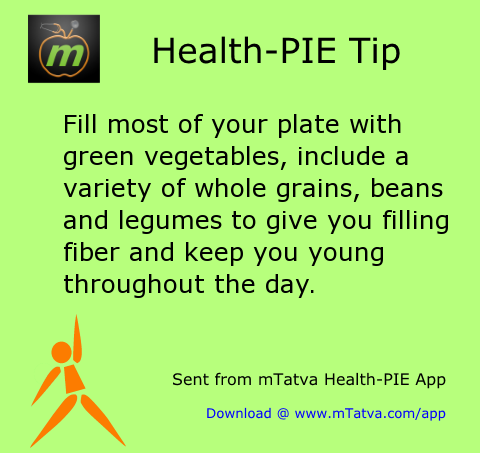
Fill most of your plate with green vegetables, include a variety of whole grains, beans and legumes to give you filling fiber and keep you young throughout the day.
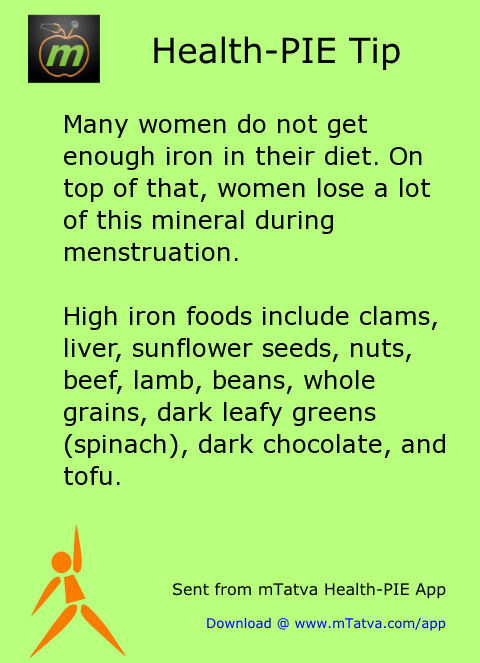
Many women do not get enough iron in their diet. On top of that, women lose a lot of this mineral during menstruation.High iron foods include clams, liver, sunflower seeds, nuts, beef, lamb, beans, whole grains, dark leafy greens (spinach), dark chocolate, and tofu.
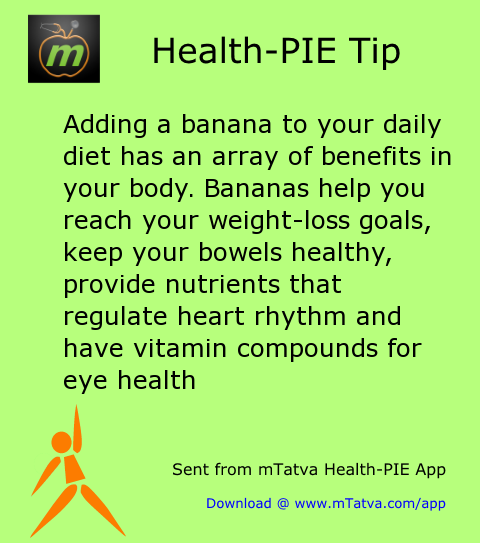
Adding a banana to your daily diet has an array of benefits in your body. Bananas help you reach your weight-loss goals, keep your bowels healthy, provide nutrients that regulate heart rhythm and have vitamin compounds for eye health
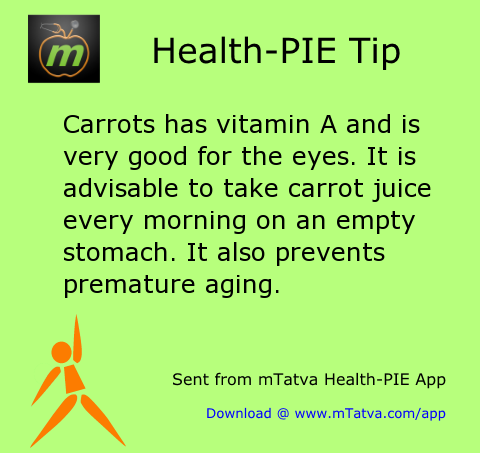
Carrots has vitamin A and is very good for the eyes. It is advisable to take carrot juice every morning on an empty stomach. It also prevents premature aging.
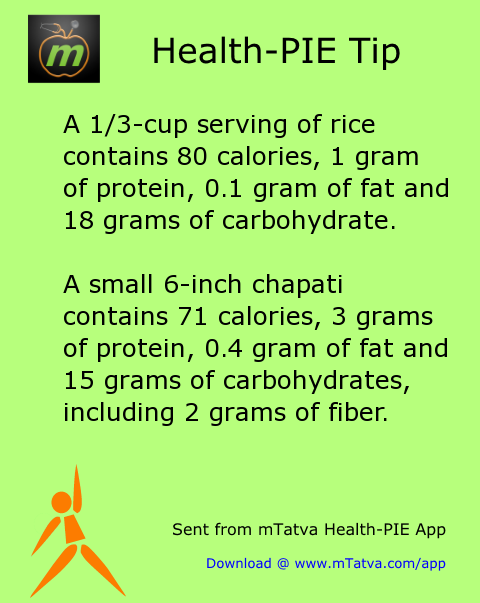
A 1/3-cup serving of rice contains 80 calories, 1 gram of protein, 0.1 gram of fat and 18 grams of carbohydrate.A small 6-inch chapati contains 71 calories, 3 grams of protein, 0.4 gram of fat and 15 grams of carbohydrates, including 2 grams of fiber.
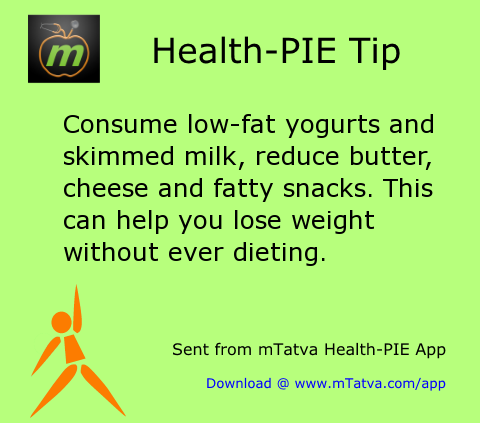
Consume low-fat yogurts and skimmed milk, reduce butter, cheese and fatty snacks. This can help you lose weight without ever dieting.

Sodium is essential to the body for fluid balance, muscle contractions and nerve reactions but those suffering from high blood pressure (hypertension) should have a low sodium intake.
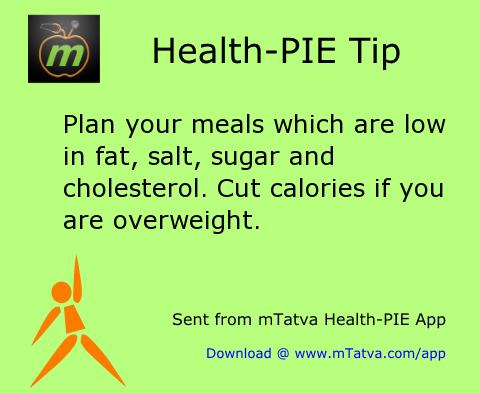
Plan your meals which are low in fat, salt, sugar and cholesterol. Cut calories if you are overweight.
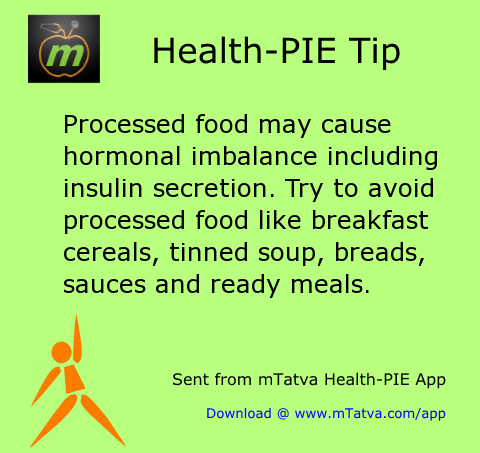
Processed food may cause hormonal imbalance including insulin secretion. Try to avoid processed food like breakfast cereals, tinned soup, breads, sauces and ready meals.
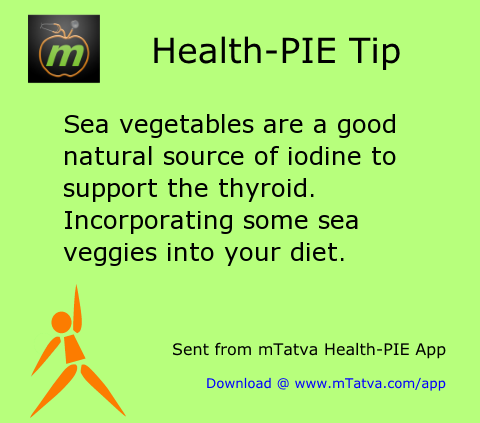
Sea vegetables are a good natural source of iodine to support the thyroid. Incorporating some sea veggies into your diet.
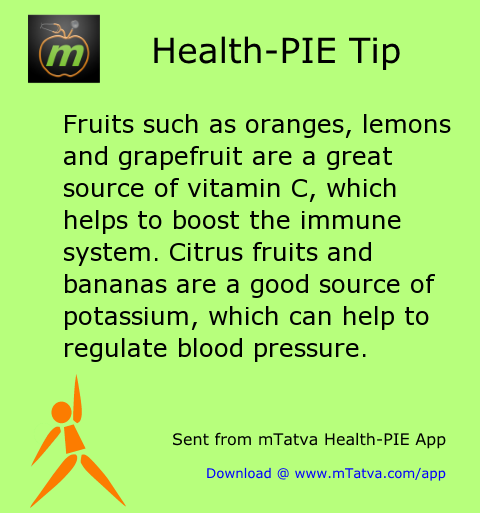
Fruits such as oranges, lemons and grapefruit are a great source of vitamin C, which helps to boost the immune system. Citrus fruits and bananas are a good source of potassium, which can help to regulate blood pressure.
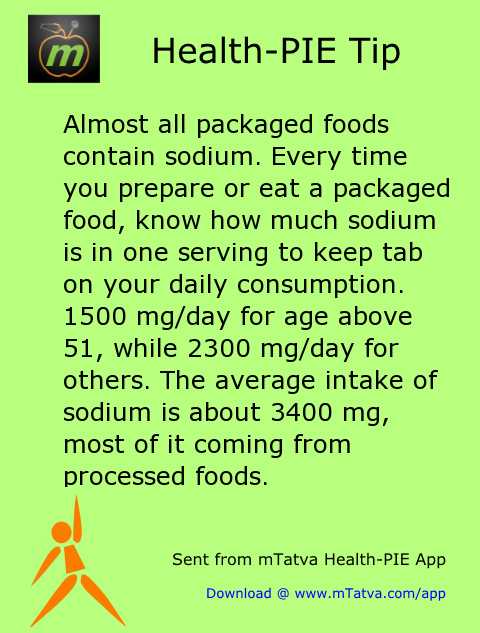
Almost all packaged foods contain sodium. Every time you prepare or eat a packaged food, know how much sodium is in one serving to keep tab on your daily consumption. 1500 mg/day for age above 51, while 2300 mg/day for others. The average intake of sodium is about 3400 mg, most of it coming from processed foods.
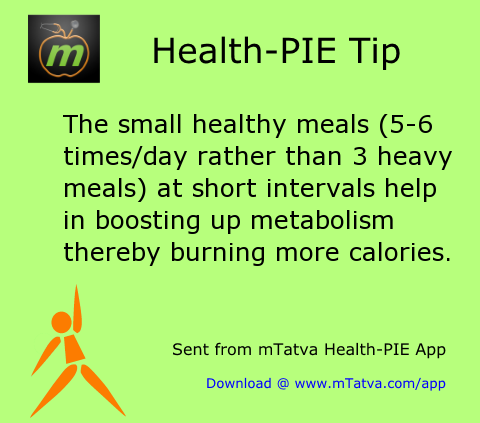
The small healthy meals (5-6 times/day rather than 3 heavy meals) at short intervals help in boosting up metabolism thereby burning more calories.
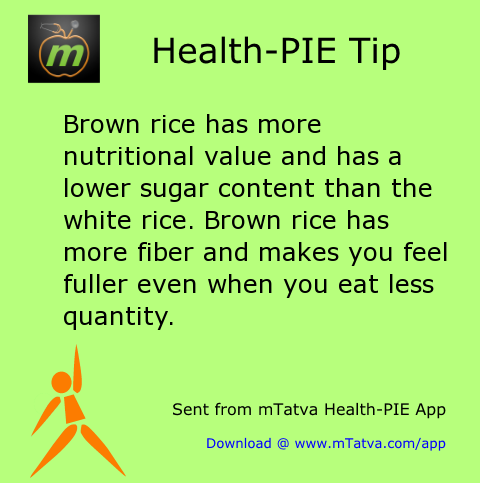
Brown rice has more nutritional value and has a lower sugar content than the white rice. Brown rice has more fiber and makes you feel fuller even when you eat less quantity.
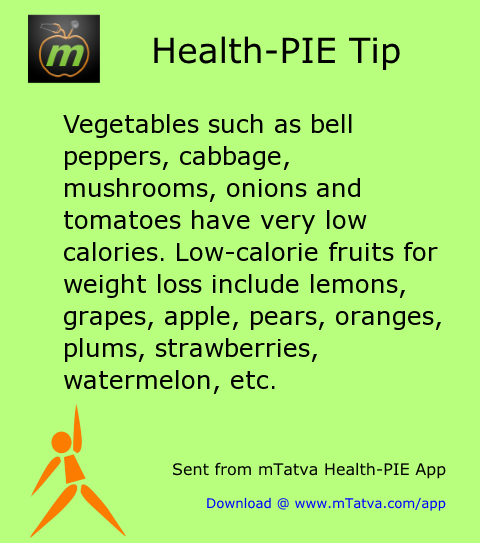
Vegetables such as bell peppers, cabbage, mushrooms, onions and tomatoes have very low calories. Low-calorie fruits for weight loss include lemons, grapes, apple, pears, oranges, plums, strawberries, watermelon, etc.
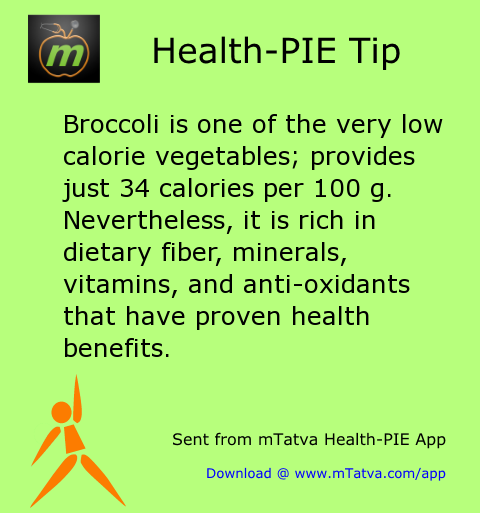
Broccoli is one of the very low calorie vegetables; provides just 34 calories per 100 g. Nevertheless, it is rich in dietary fiber, minerals, vitamins, and anti-oxidants that have proven health benefits.
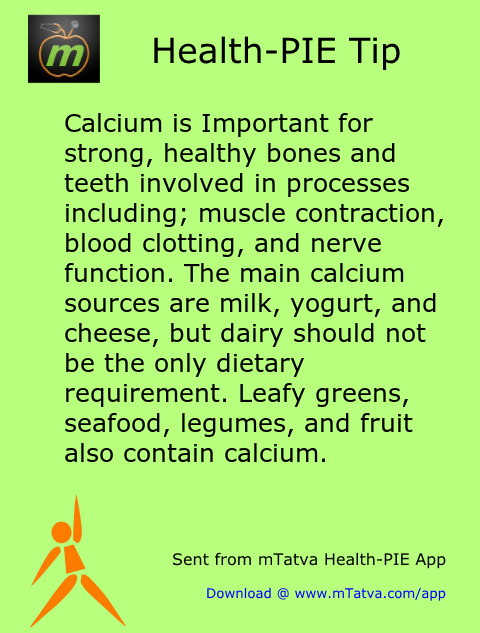
Calcium is Important for strong, healthy bones and teeth involved in processes including; muscle contraction, blood clotting, and nerve function. The main calcium sources are milk, yogurt, and cheese, but dairy should not be the only dietary requirement. Leafy greens, seafood, legumes, and fruit also contain calcium.
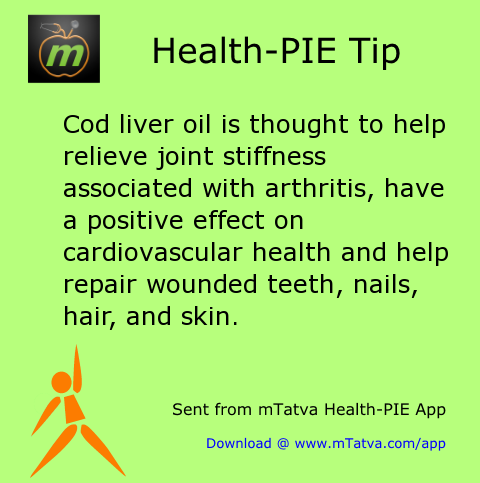
Cod liver oil is thought to help relieve joint stiffness associated with arthritis, have a positive effect on cardiovascular health and help repair wounded teeth, nails, hair, and skin.
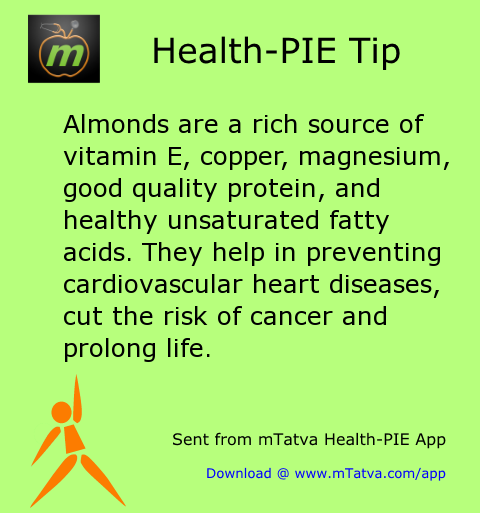
Almonds are a rich source of vitamin E, copper, magnesium, good quality protein, and healthy unsaturated fatty acids. They help in preventing cardiovascular heart diseases, cut the risk of cancer and prolong life.
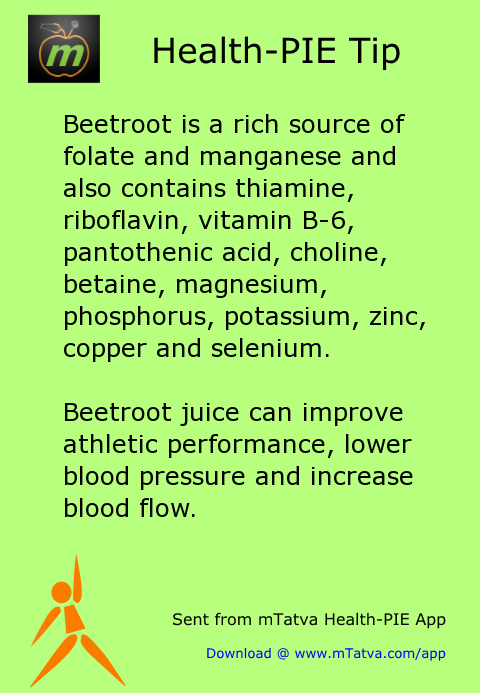
Beetroot is a rich source of folate and manganese and also contains thiamine, riboflavin, vitamin B-6, pantothenic acid, choline, betaine, magnesium, phosphorus, potassium, zinc, copper and selenium. Beetroot juice can improve athletic performance, lower blood pressure and increase blood flow.
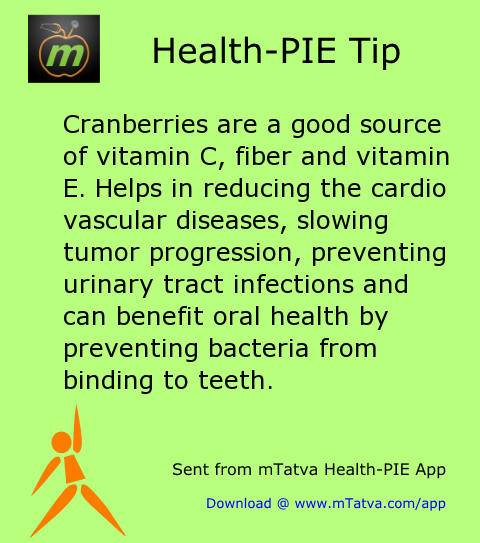
Cranberries are a good source of vitamin C, fiber and vitamin E. Helps in reducing the cardio vascular diseases, slowing tumor progression, preventing urinary tract infections and can benefit oral health by preventing bacteria from binding to teeth.
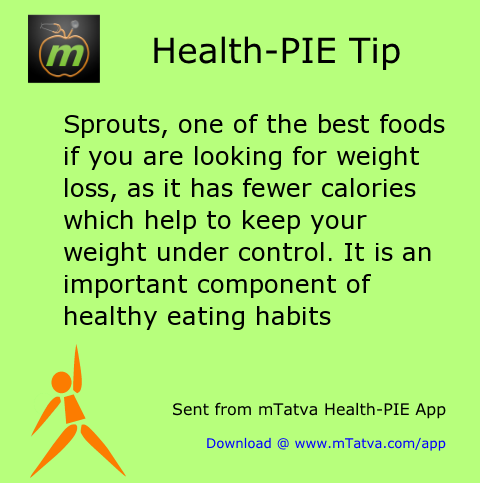
Sprouts, one of the best foods if you are looking for weight loss, as it has fewer calories which help to keep your weight under control. It is an important component of healthy eating habits
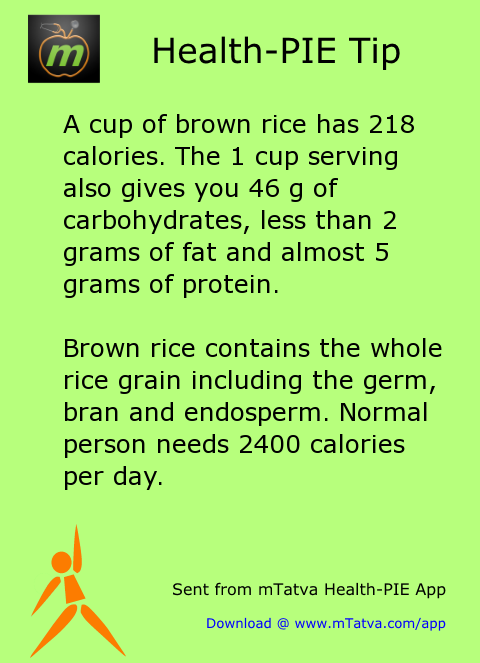
A cup of brown rice has 218 calories. The 1 cup serving also gives you 46 g of carbohydrates, less than 2 grams of fat and almost 5 grams of protein.Brown rice contains the whole rice grain including the germ, bran and endosperm. Normal person needs 2400 calories per day.
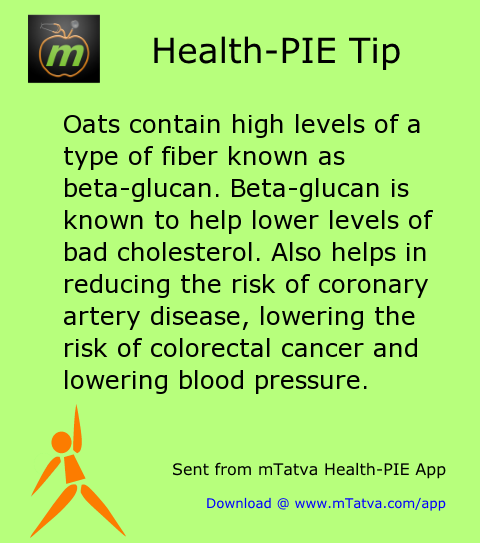
Oats contain high levels of a type of fiber known as beta-glucan. Beta-glucan is known to help lower levels of bad cholesterol. Also helps in reducing the risk of coronary artery disease, lowering the risk of colorectal cancer and lowering blood pressure.
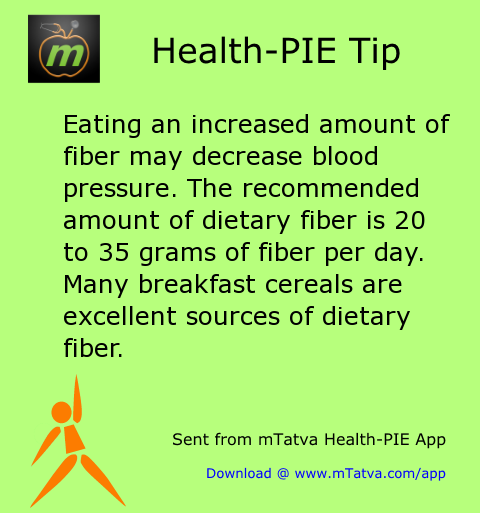
Eating an increased amount of fiber may decrease blood pressure. The recommended amount of dietary fiber is 20 to 35 grams of fiber per day. Many breakfast cereals are excellent sources of dietary fiber.
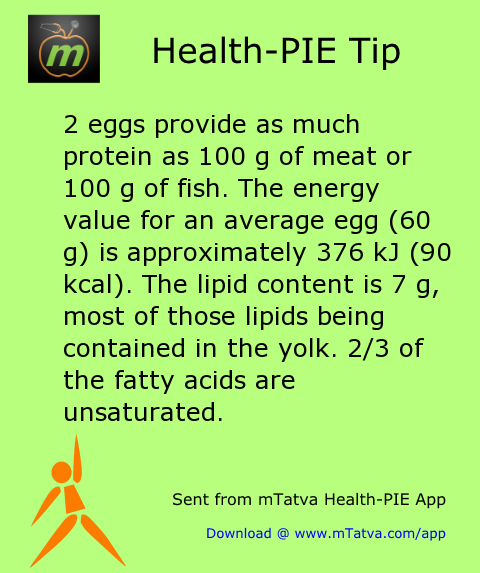
2 eggs provide as much protein as 100 g of meat or 100 g of fish. The energy value for an average egg (60 g) is approximately 376 kJ (90 kcal). The lipid content is 7 g, most of those lipids being contained in the yolk. 2/3 of the fatty acids are unsaturated.
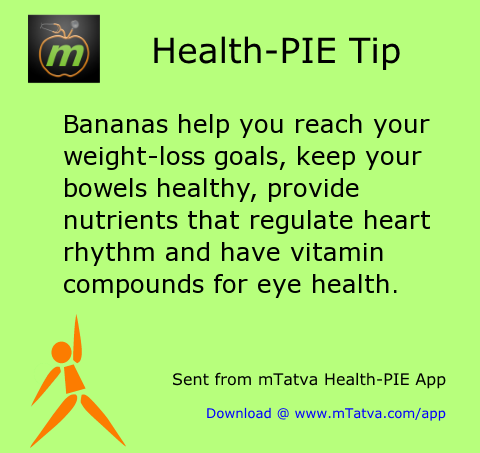
Bananas help you reach your weight-loss goals, keep your bowels healthy, provide nutrients that regulate heart rhythm and have vitamin compounds for eye health.
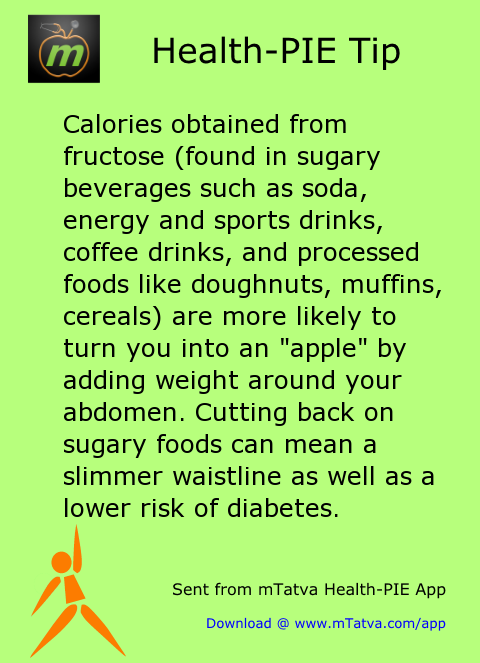
Calories obtained from fructose (found in sugary beverages such as soda, energy and sports drinks, coffee drinks, and processed foods like doughnuts, muffins, cereals) are more likely to turn you into an “apple” by adding weight around your abdomen. Cutting back on sugary foods can mean a slimmer waistline as well as a lower risk of diabetes.
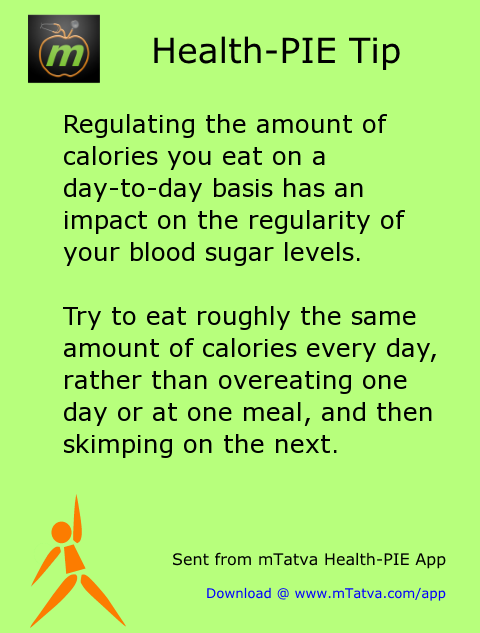
Regulating the amount of calories you eat on a day-to-day basis has an impact on the regularity of your blood sugar levels.Try to eat roughly the same amount of calories every day, rather than overeating one day or at one meal, and then skimping on the next.
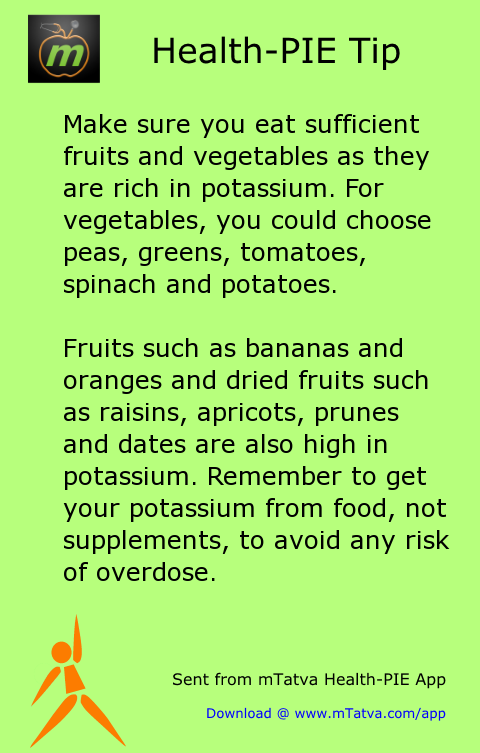
Make sure you eat sufficient fruits and vegetables as they are rich in potassium. For vegetables, you could choose peas, greens, tomatoes, spinach and potatoes. Fruits such as bananas and oranges and dried fruits such as raisins, apricots, prunes and dates are also high in potassium. Remember to get your potassium from food, not supplements, to avoid any risk of overdose.
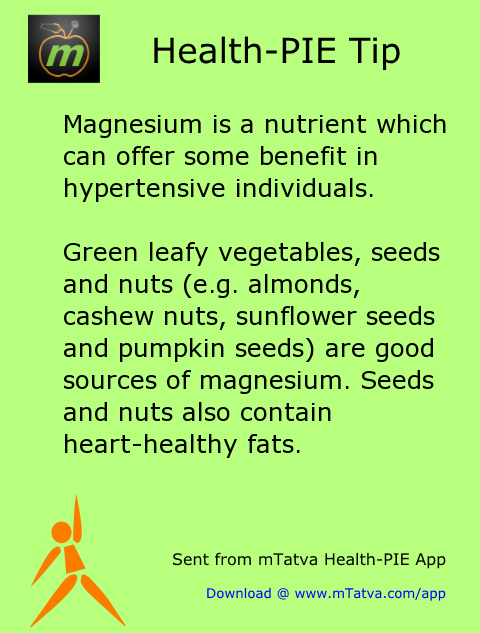
Magnesium is a nutrient which can offer some benefit in hypertensive individuals. Green leafy vegetables, seeds and nuts (e.g. almonds, cashew nuts, sunflower seeds and pumpkin seeds) are good sources of magnesium. Seeds and nuts also contain heart-healthy fats.
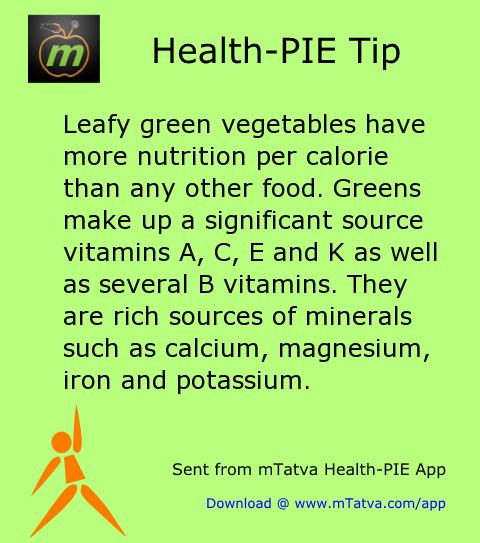
Leafy green vegetables have more nutrition per calorie than any other food. Greens make up a significant source vitamins A, C, E and K as well as several B vitamins. They are rich sources of minerals such as calcium, magnesium, iron and potassium.
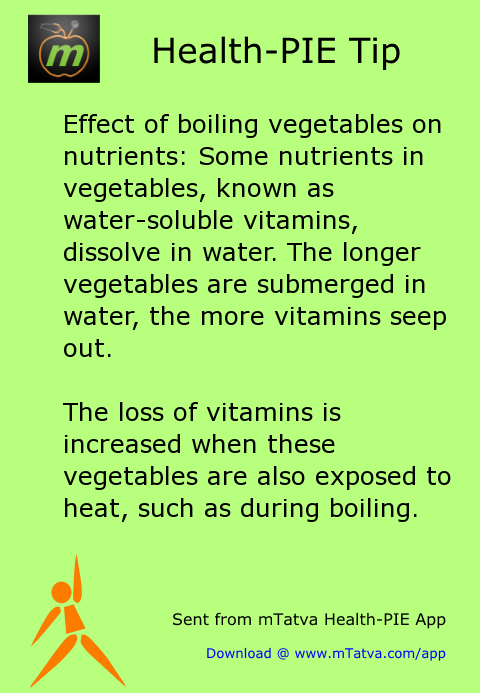
Effect of boiling vegetables on nutrients: Some nutrients in vegetables, known as water-soluble vitamins, dissolve in water. The longer vegetables are submerged in water, the more vitamins seep out.The loss of vitamins is increased when these vegetables are also exposed to heat, such as during boiling.
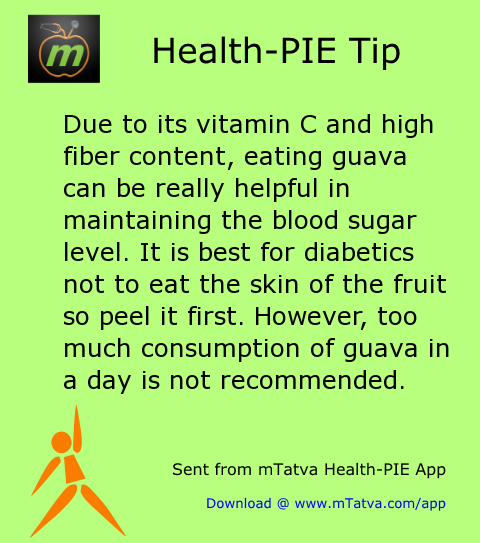
Due to its vitamin C and high fiber content, eating guava can be really helpful in maintaining the blood sugar level. It is best for diabetics not to eat the skin of the fruit so peel it first. However, too much consumption of guava in a day is not recommended.
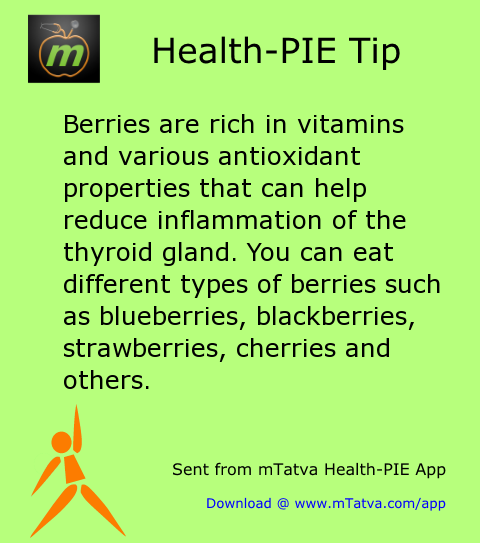
Berries are rich in vitamins and various antioxidant properties that can help reduce inflammation of the thyroid gland. You can eat different types of berries such as blueberries, blackberries, strawberries, cherries and others.
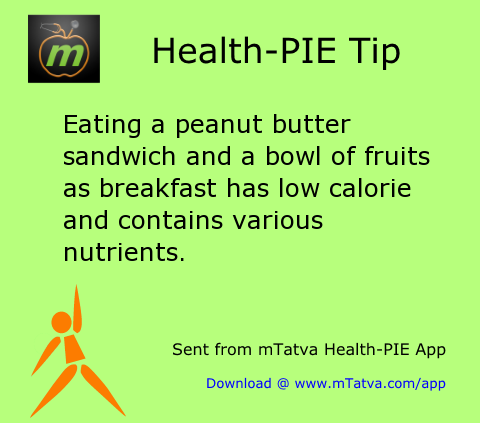
Eating a peanut butter sandwich and a bowl of fruits as breakfast has low calorie and contains various nutrients.
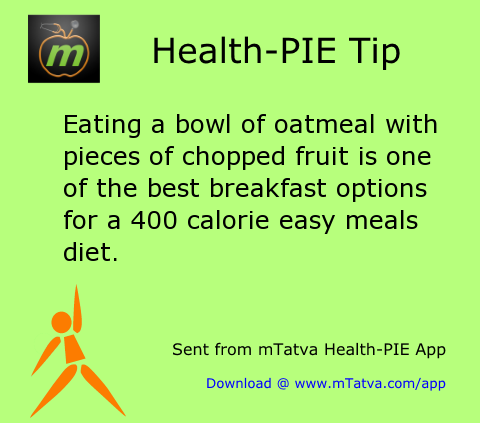
Eating a bowl of oatmeal with pieces of chopped fruit is one of the best breakfast options for a 400 calorie easy meals diet.
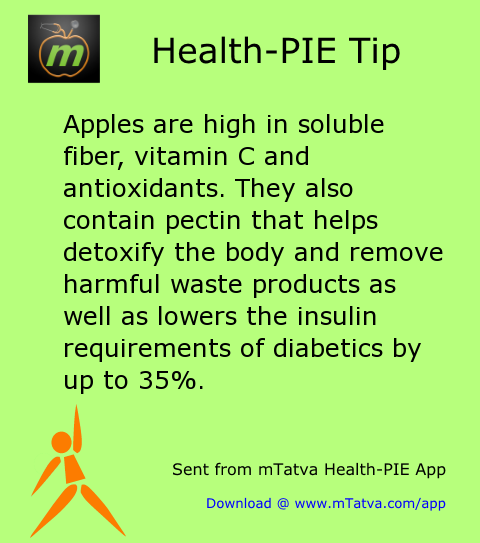
Apples are high in soluble fiber, vitamin C and antioxidants. They also contain pectin that helps detoxify the body and remove harmful waste products as well as lowers the insulin requirements of diabetics by up to 35%.
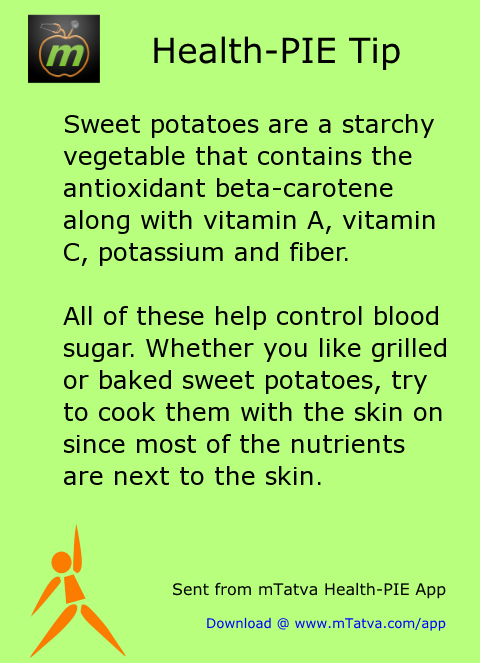
Sweet potatoes are a starchy vegetable that contains the antioxidant beta-carotene along with vitamin A, vitamin C, potassium and fiber.All of these help control blood sugar. Whether you like grilled or baked sweet potatoes, try to cook them with the skin on since most of the nutrients are next to the skin.
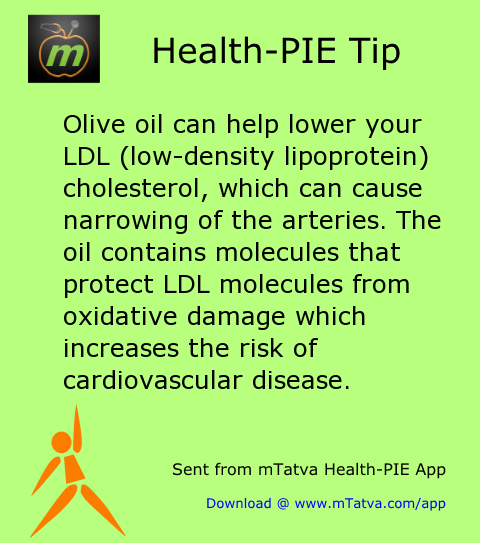
Olive oil can help lower your LDL (low-density lipoprotein) cholesterol, which can cause narrowing of the arteries. The oil contains molecules that protect LDL molecules from oxidative damage which increases the risk of cardiovascular disease.

Olive oil can help lower your LDL (low-density lipoprotein) cholesterol, which can cause narrowing of the arteries. The oil contains molecules that protect LDL molecules from oxidative damage which increases the risk of cardiovascular disease.
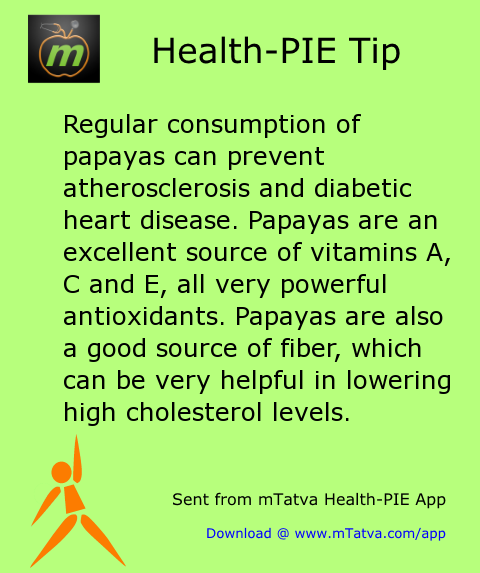
Regular consumption of papayas can prevent atherosclerosis and diabetic heart disease. Papayas are an excellent source of vitamins A, C and E, all very powerful antioxidants. Papayas are also a good source of fiber, which can be very helpful in lowering high cholesterol levels.

The high amount of the digestive enzyme called papain present in papayas helps break down tough protein fibers and aids the natural digestion process. The fruit have high water and soluble fiber content, making the digestion process easier. This in turn promotes proper functioning of bowel movements and helps prevent constipation.
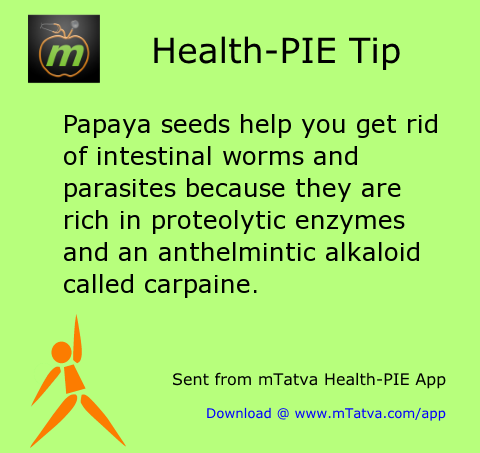
Papaya seeds help you get rid of intestinal worms and parasites because they are rich in proteolytic enzymes and an anthelmintic alkaloid called carpaine.
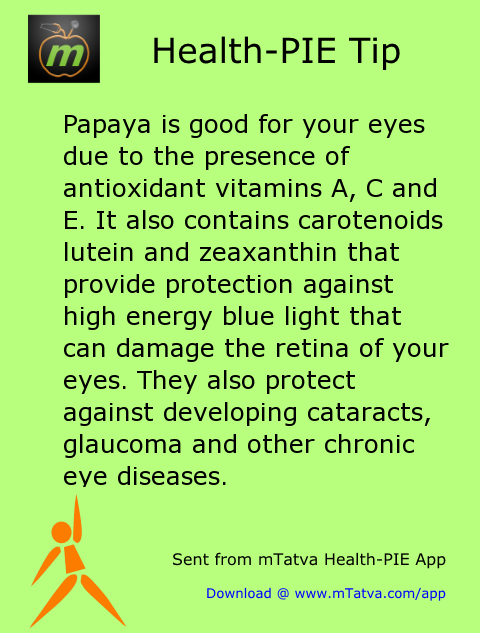
Papaya is good for your eyes due to the presence of antioxidant vitamins A, C and E. It also contains carotenoids lutein and zeaxanthin that provide protection against high energy blue light that can damage the retina of your eyes. They also protect against developing cataracts, glaucoma and other chronic eye diseases.
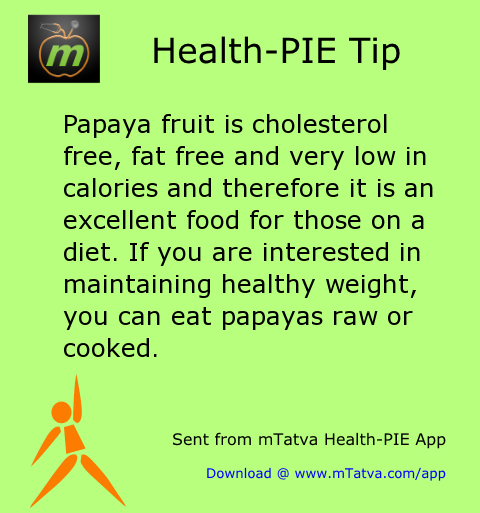
Papaya fruit is cholesterol free, fat free and very low in calories and therefore it is an excellent food for those on a diet. If you are interested in maintaining healthy weight, you can eat papayas raw or cooked.
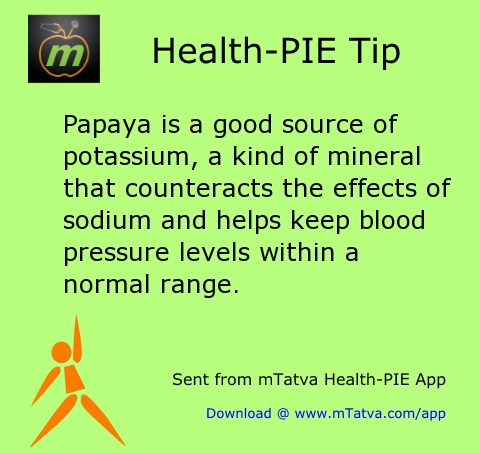
Papaya is a good source of potassium, a kind of mineral that counteracts the effects of sodium and helps keep blood pressure levels within a normal range.
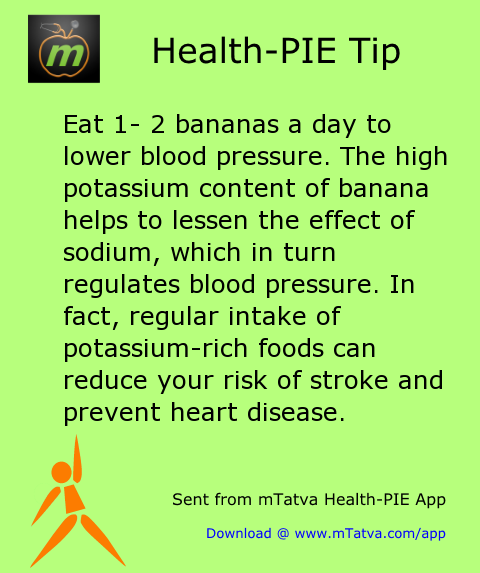
Eat 1- 2 bananas a day to lower blood pressure. The high potassium content of banana helps to lessen the effect of sodium, which in turn regulates blood pressure. In fact, regular intake of potassium-rich foods can reduce your risk of stroke and prevent heart disease.
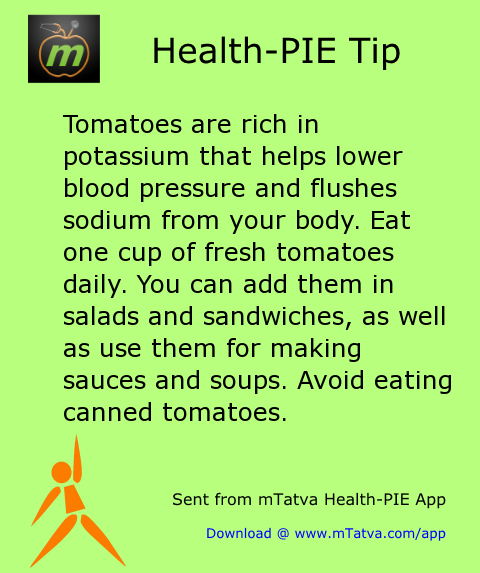
Tomatoes are rich in potassium that helps lower blood pressure and flushes sodium from your body. Eat one cup of fresh tomatoes daily. You can add them in salads and sandwiches, as well as use them for making sauces and soups. Avoid eating canned tomatoes.
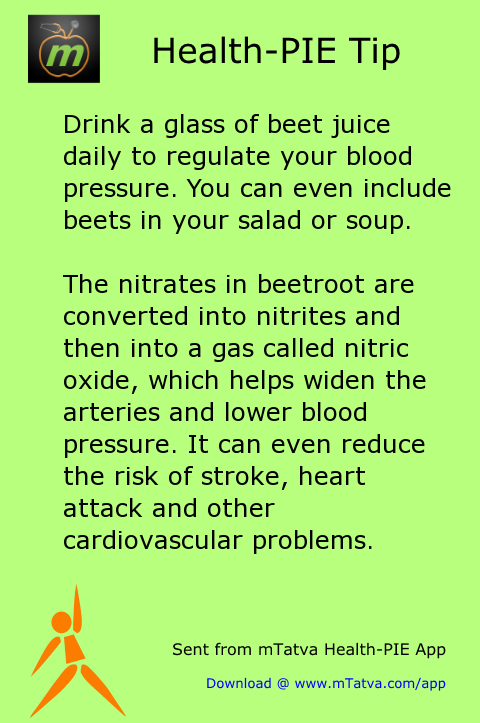
Drink a glass of beet juice daily to regulate your blood pressure. You can even include beets in your salad or soup.The nitrates in beetroot are converted into nitrites and then into a gas called nitric oxide, which helps widen the arteries and lower blood pressure. It can even reduce the risk of stroke, heart attack and other cardiovascular problems.
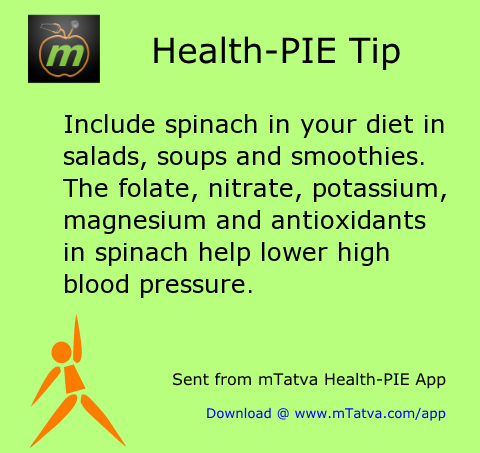
Include spinach in your diet in salads, soups and smoothies. The folate, nitrate, potassium, magnesium and antioxidants in spinach help lower high blood pressure.
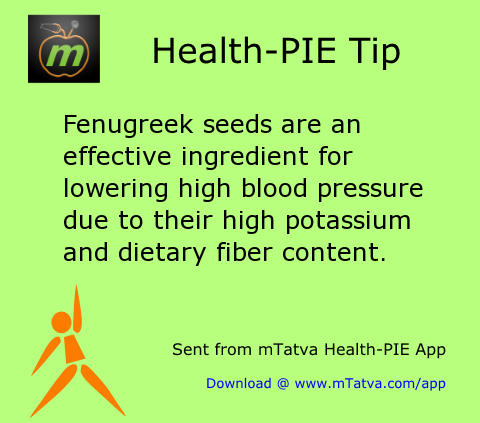
Fenugreek seeds are an effective ingredient for lowering high blood pressure due to their high potassium and dietary fiber content.
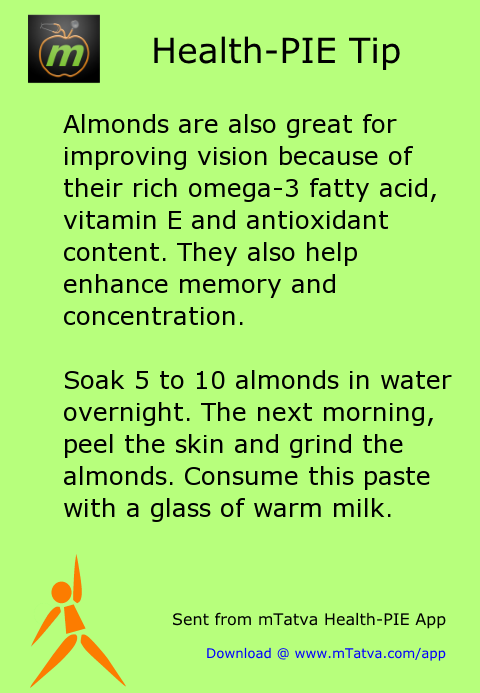
Almonds are also great for improving vision because of their rich omega-3 fatty acid, vitamin E and antioxidant content. They also help enhance memory and concentration.Soak 5 to 10 almonds in water overnight. The next morning, peel the skin and grind the almonds. Consume this paste with a glass of warm milk.
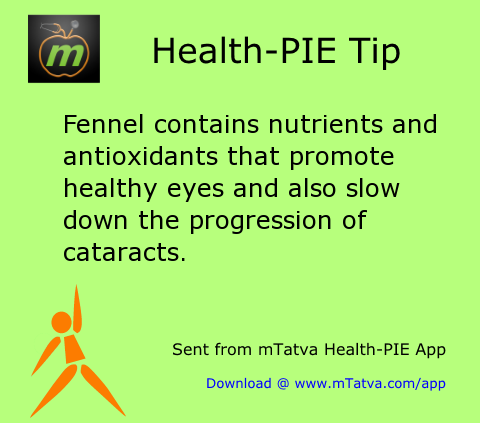
Fennel contains nutrients and antioxidants that promote healthy eyes and also slow down the progression of cataracts.
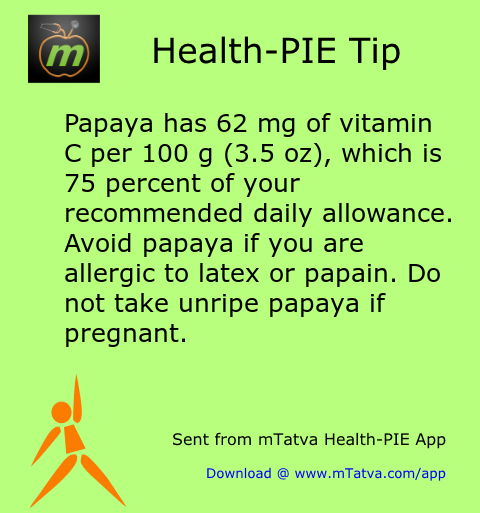
Papaya has 62 mg of vitamin C per 100 g (3.5 oz), which is 75 percent of your recommended daily allowance. Avoid papaya if you are allergic to latex or papain. Do not take unripe papaya if pregnant.
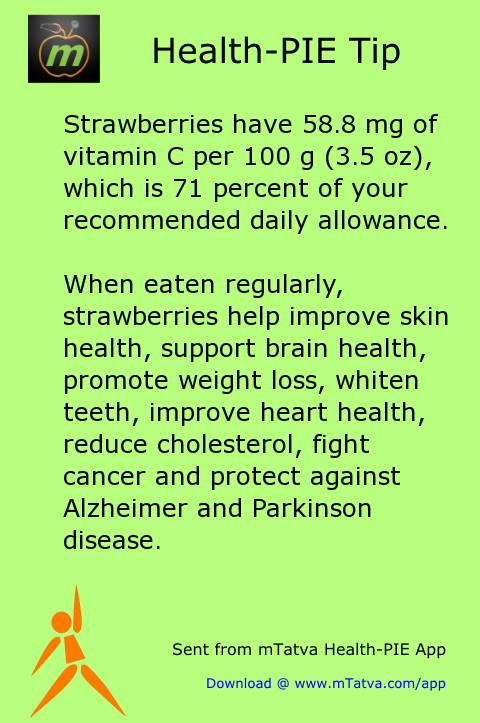
Strawberries have 58.8 mg of vitamin C per 100 g (3.5 oz), which is 71 percent of your recommended daily allowance.When eaten regularly, strawberries help improve skin health, support brain health, promote weight loss, whiten teeth, improve heart health, reduce cholesterol, fight cancer and protect against Alzheimer and Parkinson disease.
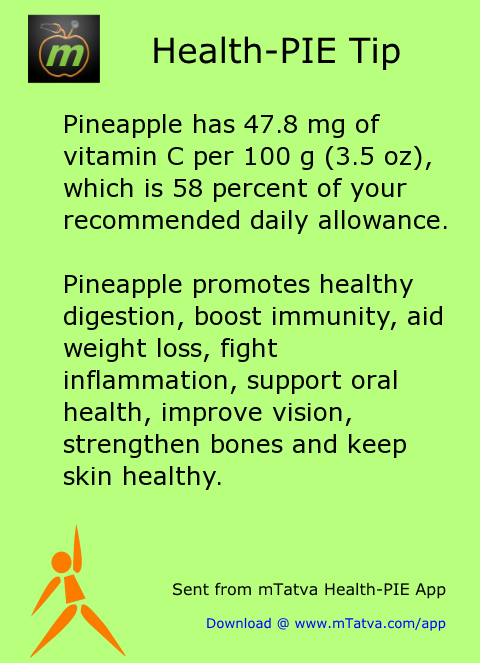
Pineapple has 47.8 mg of vitamin C per 100 g (3.5 oz), which is 58 percent of your recommended daily allowance. Pineapple promotes healthy digestion, boost immunity, aid weight loss, fight inflammation, support oral health, improve vision, strengthen bones and keep skin healthy.
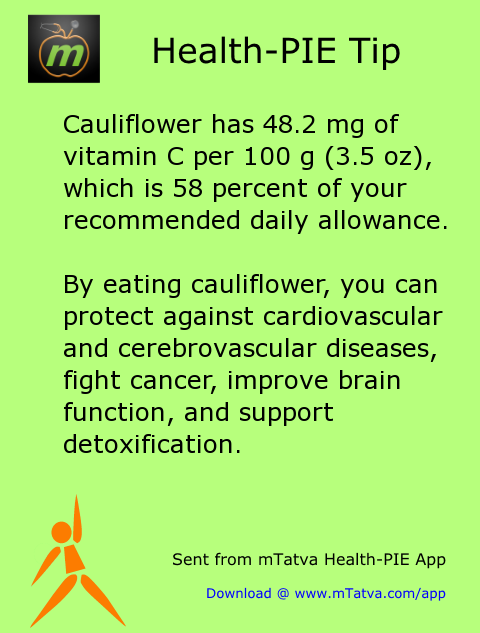
Cauliflower has 48.2 mg of vitamin C per 100 g (3.5 oz), which is 58 percent of your recommended daily allowance. By eating cauliflower, you can protect against cardiovascular and cerebrovascular diseases, fight cancer, improve brain function, and support detoxification.
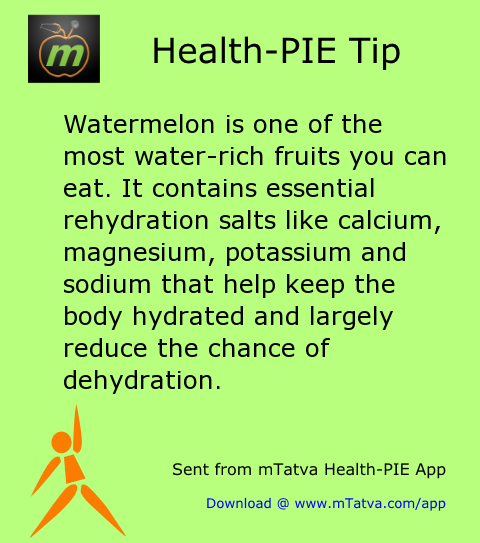
Watermelon is one of the most water-rich fruits you can eat. It contains essential rehydration salts like calcium, magnesium, potassium and sodium that help keep the body hydrated and largely reduce the chance of dehydration.
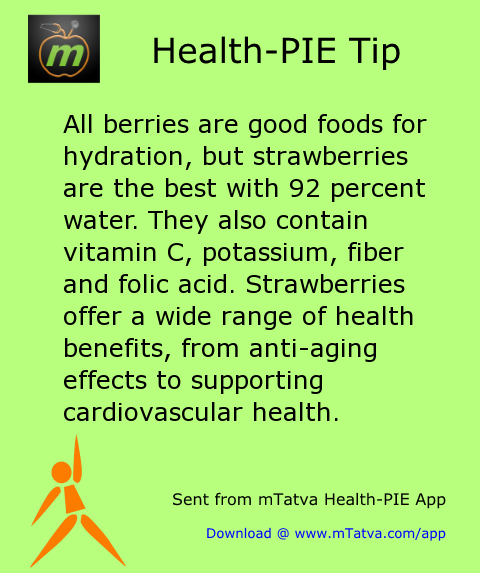
All berries are good foods for hydration, but strawberries are the best with 92 percent water. They also contain vitamin C, potassium, fiber and folic acid. Strawberries offer a wide range of health benefits, from anti-aging effects to supporting cardiovascular health.
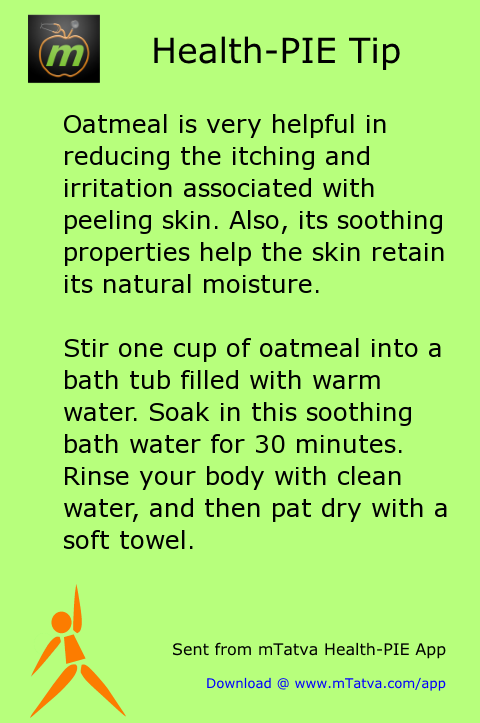
Oatmeal is very helpful in reducing the itching and irritation associated with peeling skin. Also, its soothing properties help the skin retain its natural moisture.Stir one cup of oatmeal into a bath tub filled with warm water. Soak in this soothing bath water for 30 minutes. Rinse your body with clean water, and then pat dry with a soft towel.
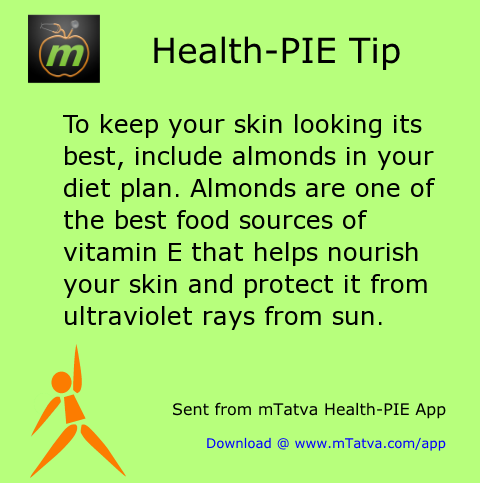
To keep your skin looking its best, include almonds in your diet plan. Almonds are one of the best food sources of vitamin E that helps nourish your skin and protect it from ultraviolet rays from sun.
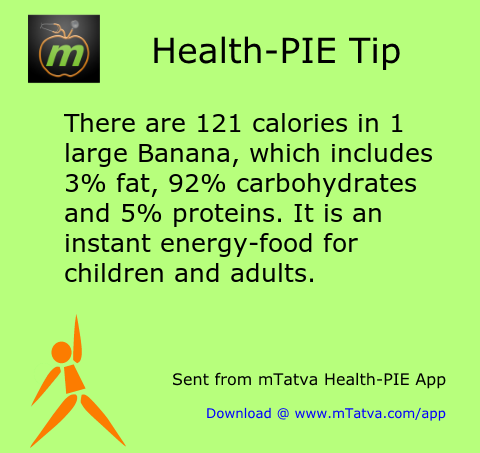
There are 121 calories in 1 large Banana, which includes 3% fat, 92% carbohydrates and 5% proteins. It is an instant energy-food for children and adults.
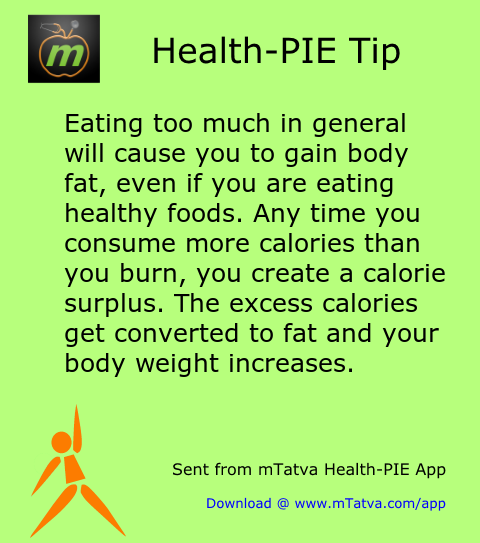
Eating too much in general will cause you to gain body fat, even if you are eating healthy foods. Any time you consume more calories than you burn, you create a calorie surplus. The excess calories get converted to fat and your body weight increases.
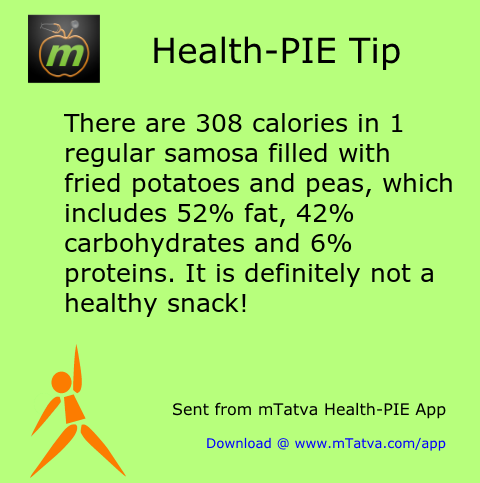
There are 308 calories in 1 regular samosa filled with fried potatoes and peas, which includes 52% fat, 42% carbohydrates and 6% proteins. It is definitely not a healthy snack!
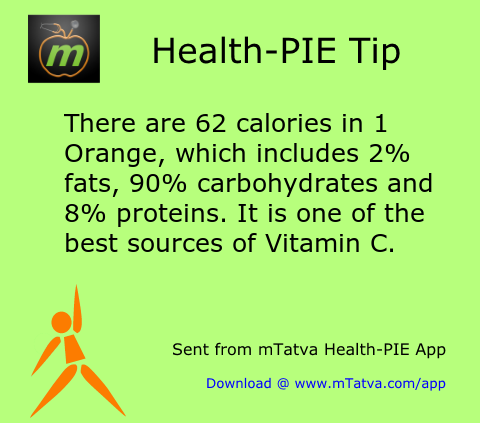
There are 62 calories in 1 Orange, which includes 2% fats, 90% carbohydrates and 8% proteins. It is one of the best sources of Vitamin C.
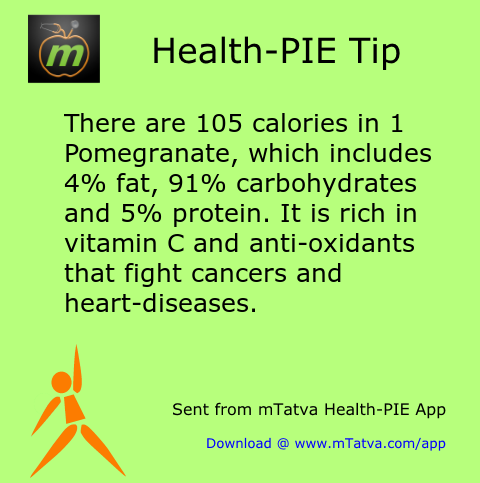
There are 105 calories in 1 Pomegranate, which includes 4% fat, 91% carbohydrates and 5% protein. It is rich in vitamin C and anti-oxidants that fight cancers and heart-diseases.
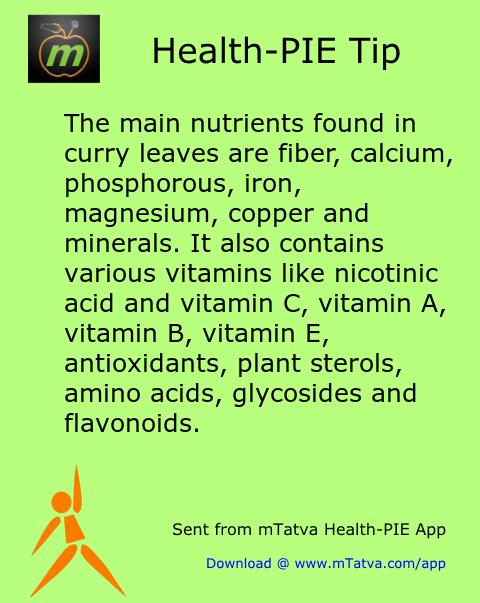
The main nutrients found in curry leaves are fiber, calcium, phosphorous, iron, magnesium, copper and minerals. It also contains various vitamins like nicotinic acid and vitamin C, vitamin A, vitamin B, vitamin E, antioxidants, plant sterols, amino acids, glycosides and flavonoids.
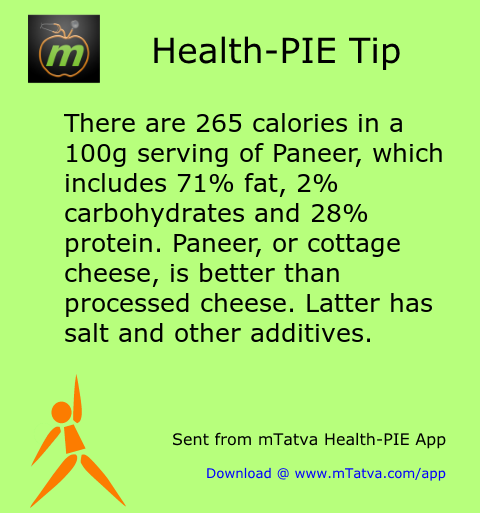
There are 265 calories in a 100g serving of Paneer, which includes 71% fat, 2% carbohydrates and 28% protein. Paneer, or cottage cheese, is better than processed cheese. Latter has salt and other additives.
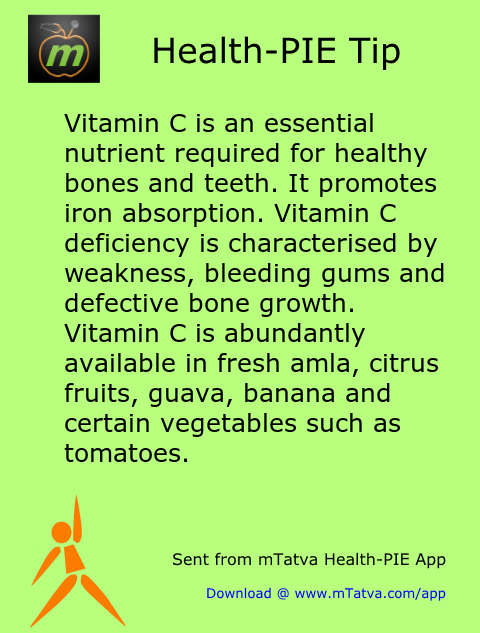
Vitamin C is an essential nutrient required for healthy bones and teeth. It promotes iron absorption. Vitamin C deficiency is characterised by weakness, bleeding gums and defective bone growth.Vitamin C is abundantly available in fresh amla, citrus fruits, guava, banana and certain vegetables such as tomatoes.

Broccoli is very low in calories but packed with fiber, vitamins, and minerals. It also contains powerful antioxidants that fight various cancers.

Your body needs a certain amount of healthy fat for optimal energy and function. Look for unsaturated fats and foods with key fatty acids, like Omega-3 and Omega-6, that provide heart health and joint lubricating qualities.All fat has calories so do not go overboard with healthy fats!
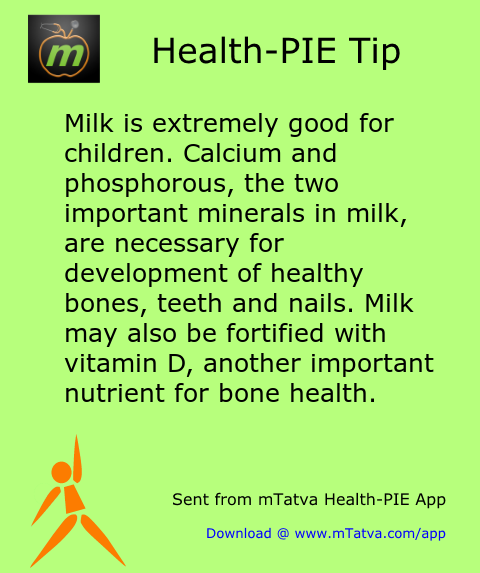
Milk is extremely good for children. Calcium and phosphorous, the two important minerals in milk, are necessary for development of healthy bones, teeth and nails. Milk may also be fortified with vitamin D, another important nutrient for bone health.
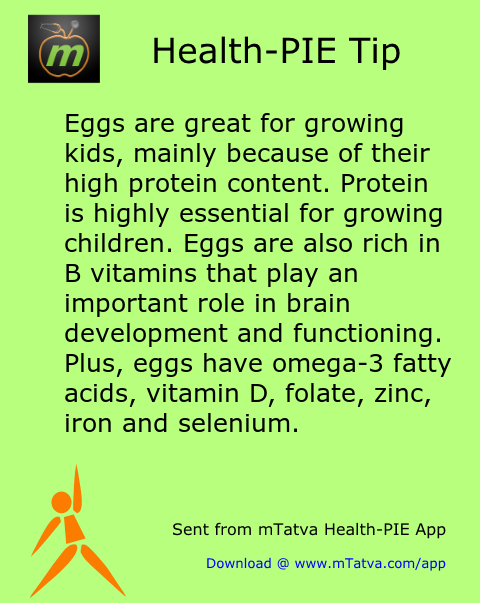
Eggs are great for growing kids, mainly because of their high protein content. Protein is highly essential for growing children. Eggs are also rich in B vitamins that play an important role in brain development and functioning. Plus, eggs have omega-3 fatty acids, vitamin D, folate, zinc, iron and selenium.
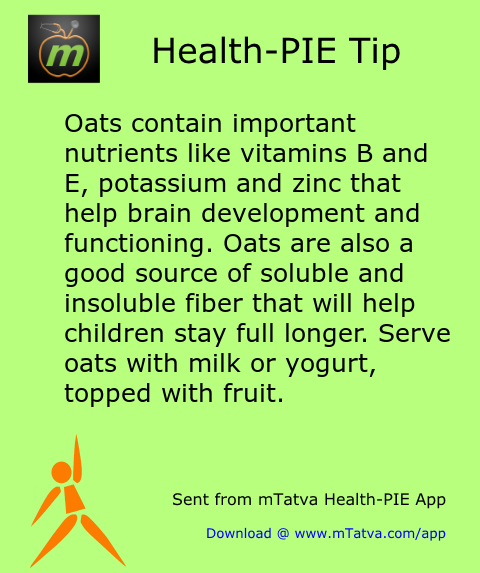
Oats contain important nutrients like vitamins B and E, potassium and zinc that help brain development and functioning. Oats are also a good source of soluble and insoluble fiber that will help children stay full longer. Serve oats with milk or yogurt, topped with fruit.
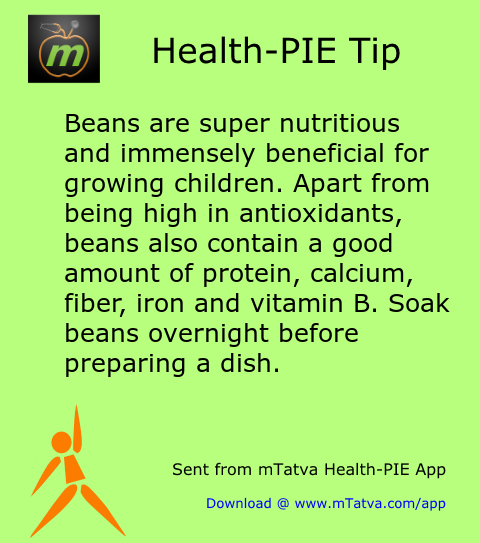
Beans are super nutritious and immensely beneficial for growing children. Apart from being high in antioxidants, beans also contain a good amount of protein, calcium, fiber, iron and vitamin B. Soak beans overnight before preparing a dish.
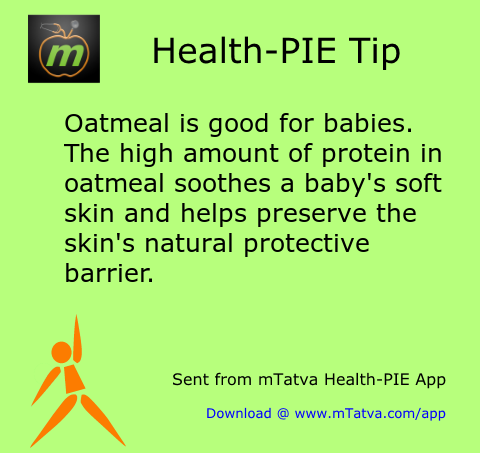
Oatmeal is good for babies. The high amount of protein in oatmeal soothes a baby’s soft skin and helps preserve the skin’s natural protective barrier.
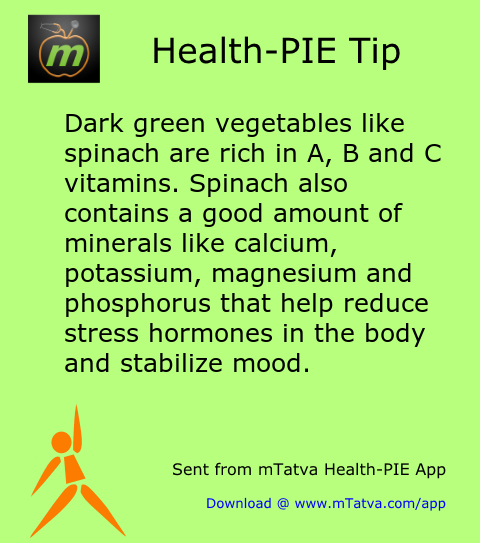
Dark green vegetables like spinach are rich in A, B and C vitamins. Spinach also contains a good amount of minerals like calcium, potassium, magnesium and phosphorus that help reduce stress hormones in the body and stabilize mood.

Avocados contain a good amount of minerals, protein, and vitamins C and E. They are also high in fiber, potassium and healthy fat. All these nutrients help regulate stress hormones by keeping your nerves and brain cells healthy. Eating one-half or whole avocado daily can significantly lower your blood pressure level and reduce your stress hormone level.
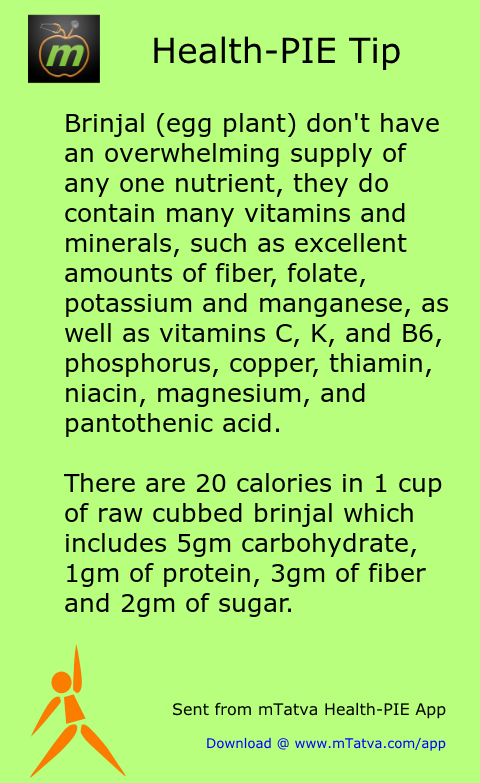
Brinjal (egg plant) don’t have an overwhelming supply of any one nutrient, they do contain many vitamins and minerals, such as excellent amounts of fiber, folate, potassium and manganese, as well as vitamins C, K, and B6, phosphorus, copper, thiamin, niacin, magnesium, and pantothenic acid. There are 20 calories in 1 cup of raw cubbed brinjal which includes 5gm carbohydrate, 1gm of protein, 3gm of fiber and 2gm of sugar.
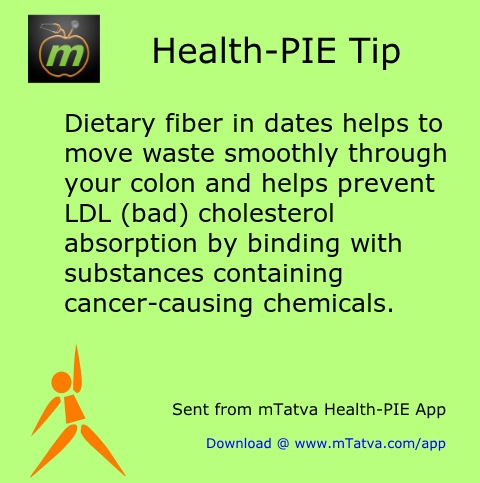
Dietary fiber in dates helps to move waste smoothly through your colon and helps prevent LDL (bad) cholesterol absorption by binding with substances containing cancer-causing chemicals.
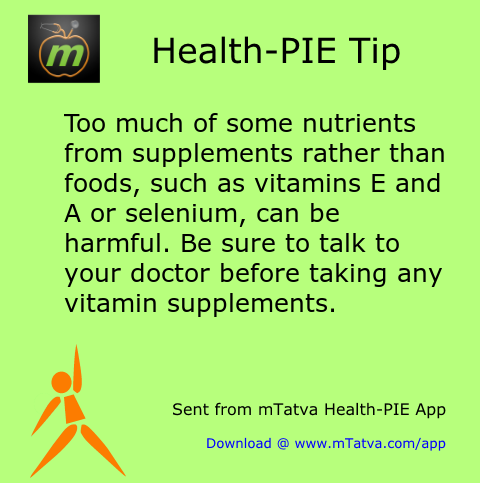
Too much of some nutrients from supplements rather than foods, such as vitamins E and A or selenium, can be harmful. Be sure to talk to your doctor before taking any vitamin supplements.
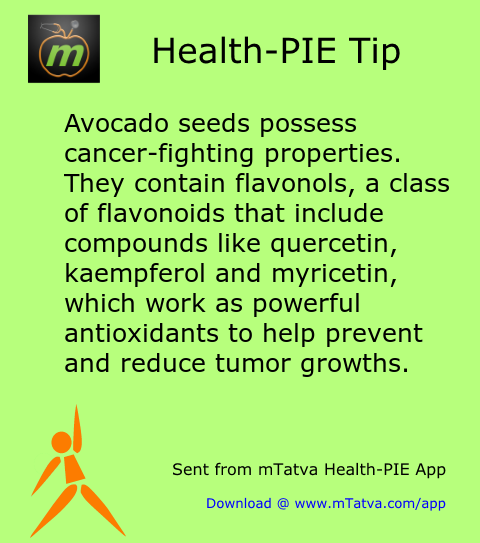
Avocado seeds possess cancer-fighting properties. They contain flavonols, a class of flavonoids that include compounds like quercetin, kaempferol and myricetin, which work as powerful antioxidants to help prevent and reduce tumor growths.
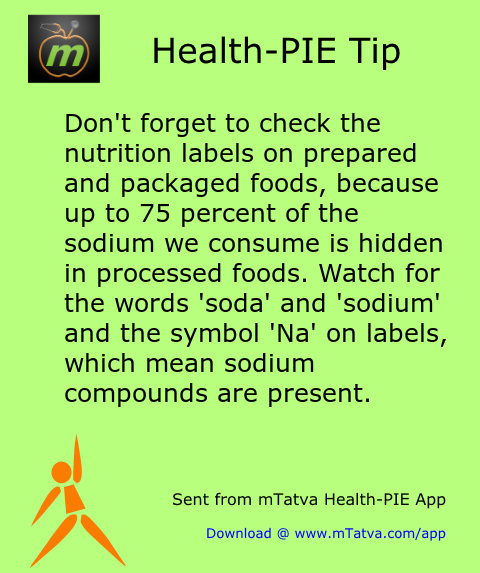
Don’t forget to check the nutrition labels on prepared and packaged foods, because up to 75 percent of the sodium we consume is hidden in processed foods. Watch for the words ‘soda’ and ‘sodium’ and the symbol ‘Na’ on labels, which mean sodium compounds are present.
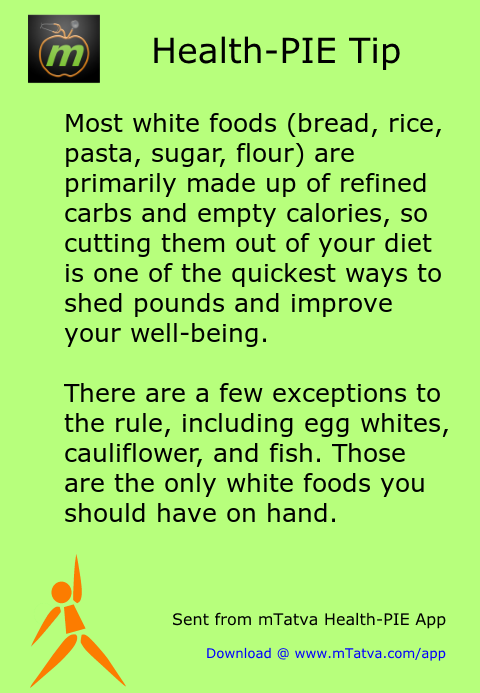
Most white foods (bread, rice, pasta, sugar, flour) are primarily made up of refined carbs and empty calories, so cutting them out of your diet is one of the quickest ways to shed pounds and improve your well-being. There are a few exceptions to the rule, including egg whites, cauliflower, and fish. Those are the only white foods you should have on hand.
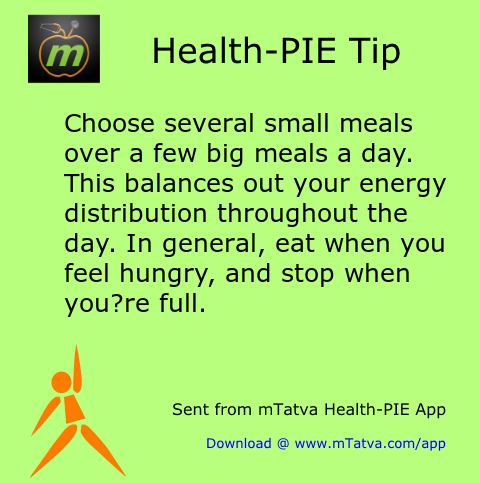
Choose several small meals over a few big meals a day. This balances out your energy distribution throughout the day. In general, eat when you feel hungry, and stop when you?re full.
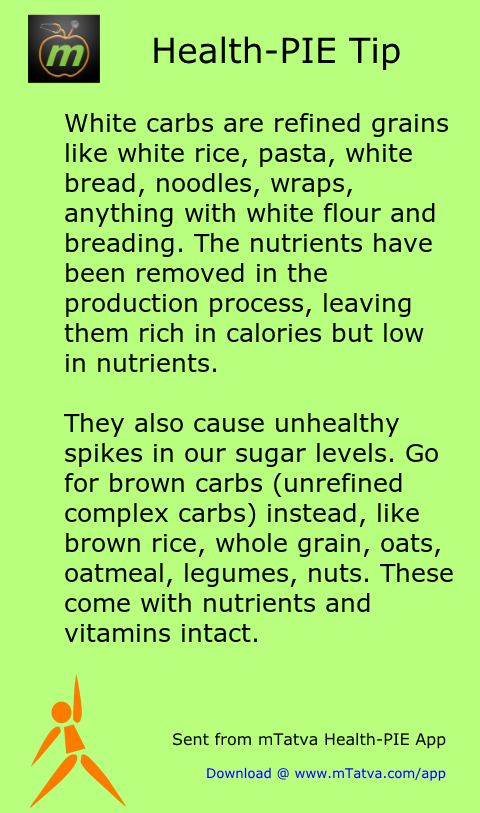
White carbs are refined grains like white rice, pasta, white bread, noodles, wraps, anything with white flour and breading. The nutrients have been removed in the production process, leaving them rich in calories but low in nutrients. They also cause unhealthy spikes in our sugar levels. Go for brown carbs (unrefined complex carbs) instead, like brown rice, whole grain, oats, oatmeal, legumes, nuts. These come with nutrients and vitamins intact.
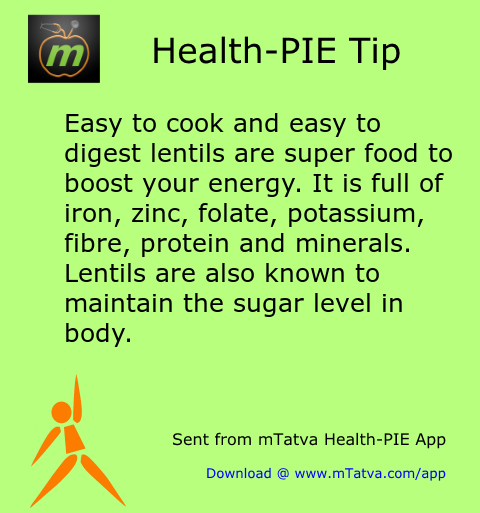
Easy to cook and easy to digest lentils are super food to boost your energy. It is full of iron, zinc, folate, potassium, fibre, protein and minerals. Lentils are also known to maintain the sugar level in body.
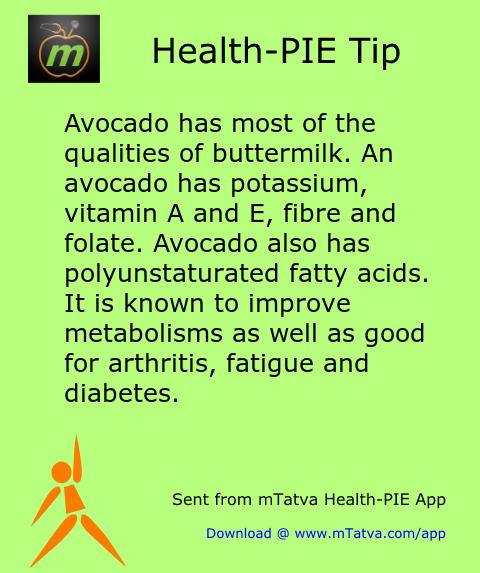
Avocado has most of the qualities of buttermilk. An avocado has potassium, vitamin A and E, fibre and folate. Avocado also has polyunstaturated fatty acids. It is known to improve metabolisms as well as good for arthritis, fatigue and diabetes.
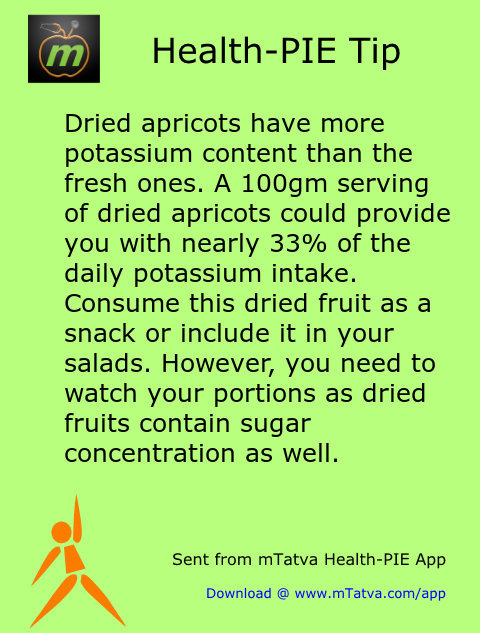
Dried apricots have more potassium content than the fresh ones. A 100gm serving of dried apricots could provide you with nearly 33% of the daily potassium intake. Consume this dried fruit as a snack or include it in your salads. However, you need to watch your portions as dried fruits contain sugar concentration as well.
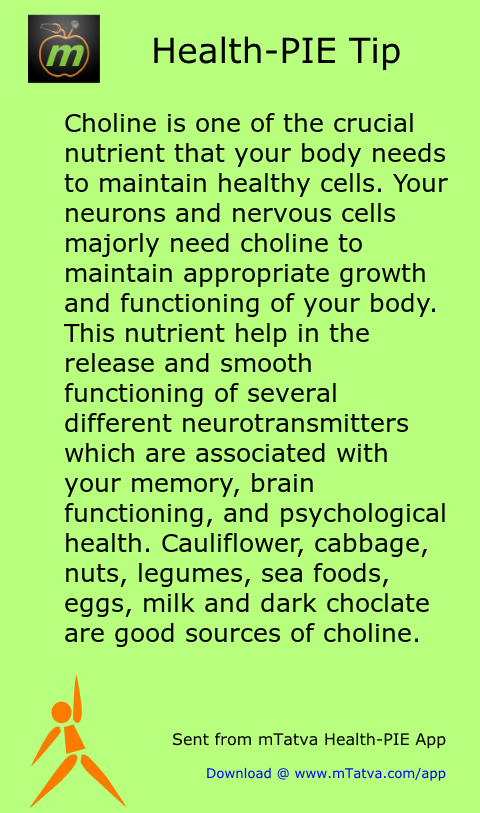
Choline is one of the crucial nutrient that your needs to maintain healthy cells. Your neurons and nervous cells majorly need choline to maintain appropriate growth and functioning of your body. This nutrient help in the release and smooth functioning of several different neurotransmitters which are associated with your memory, brain functioning, and psychological health. Cauliflower, cabbage, nuts, legumes, sea foods, eggs, milk and dark choclate are good soueces of choline.
